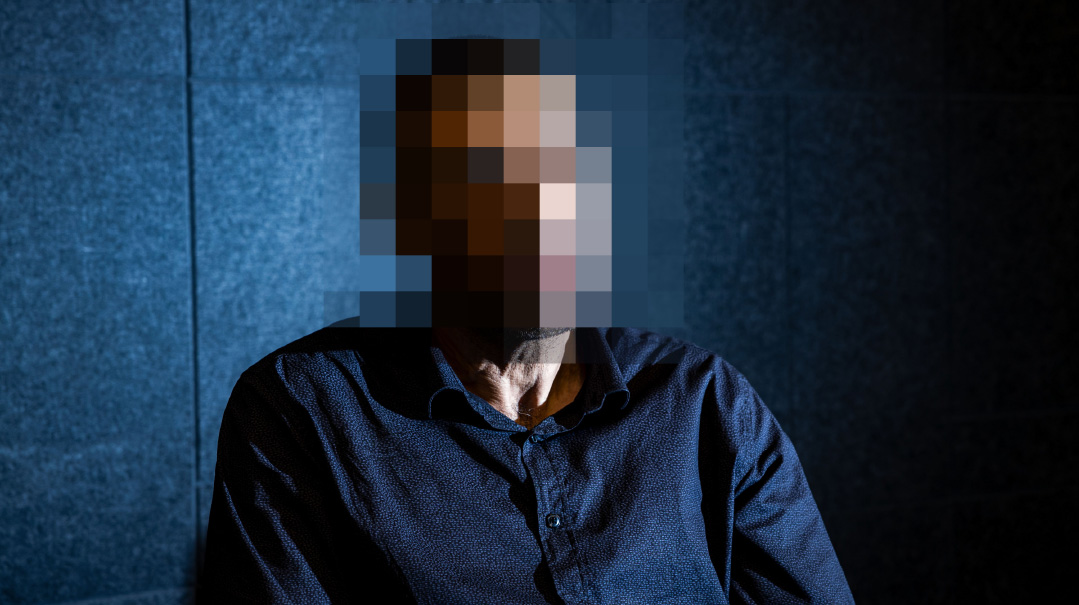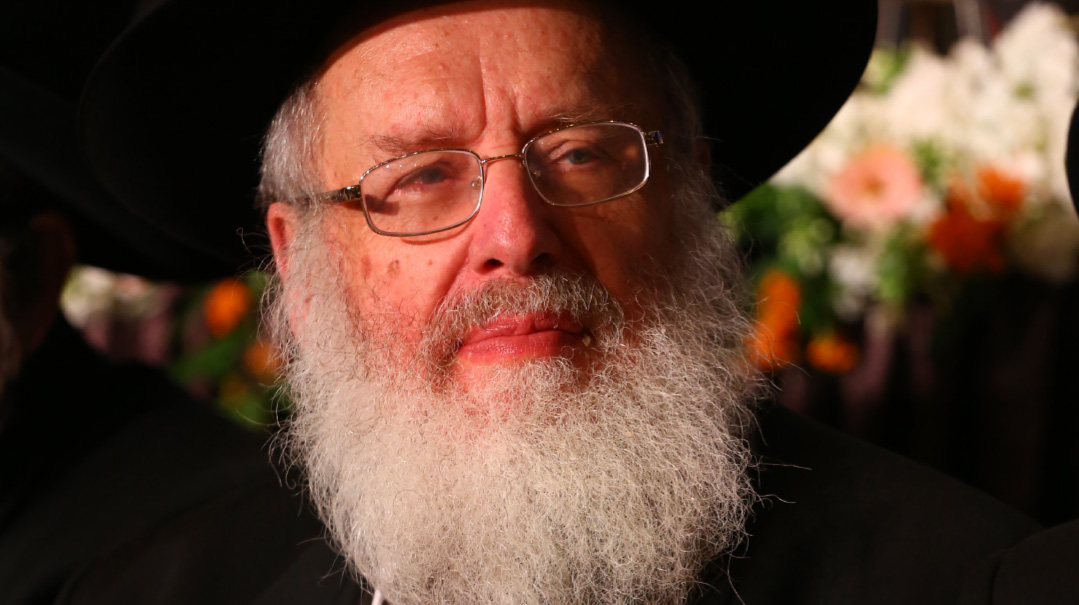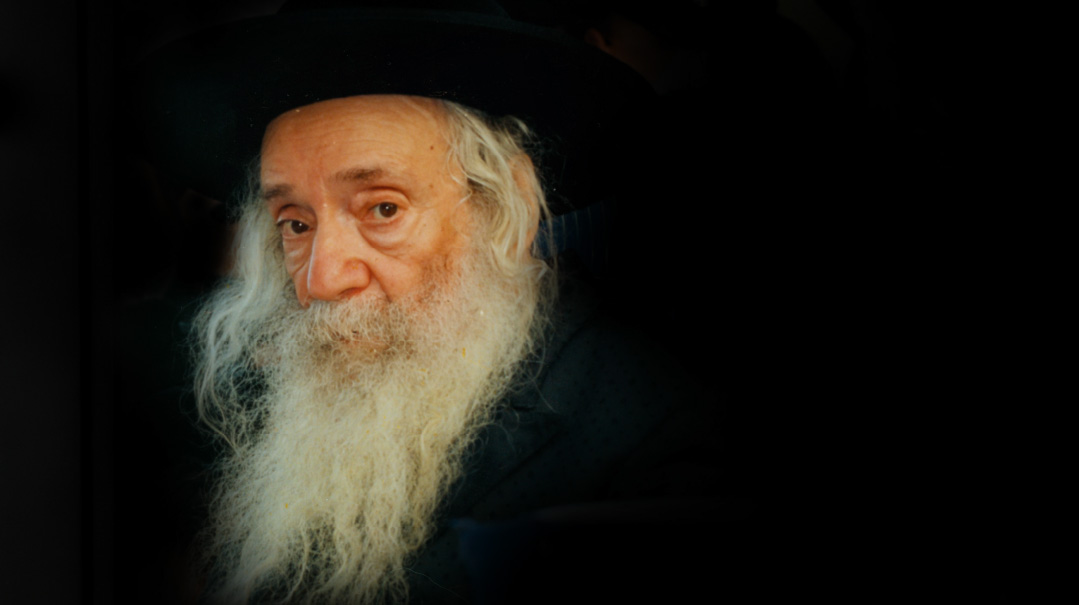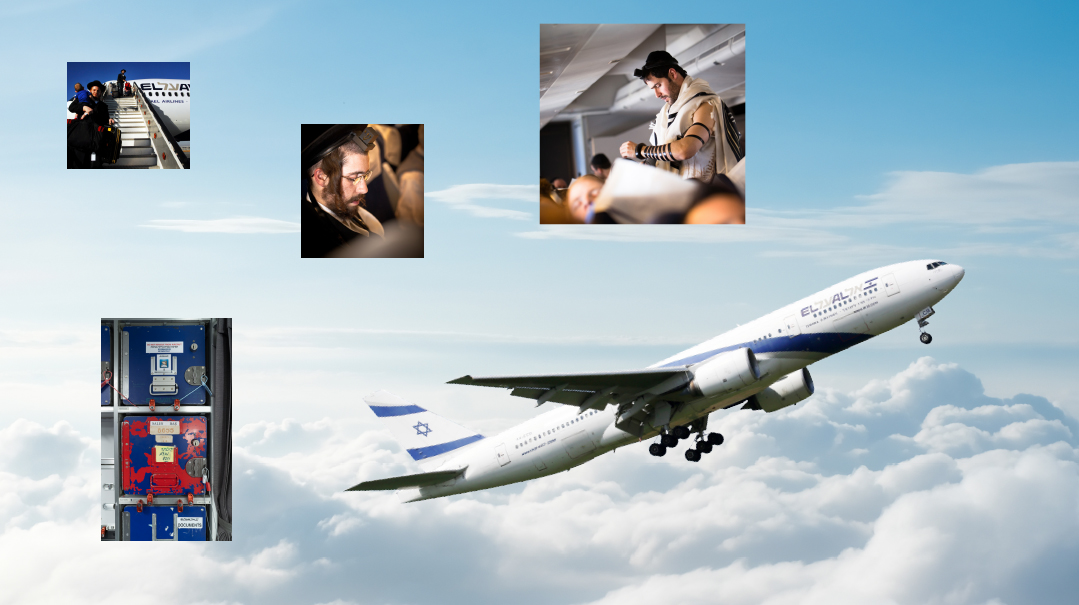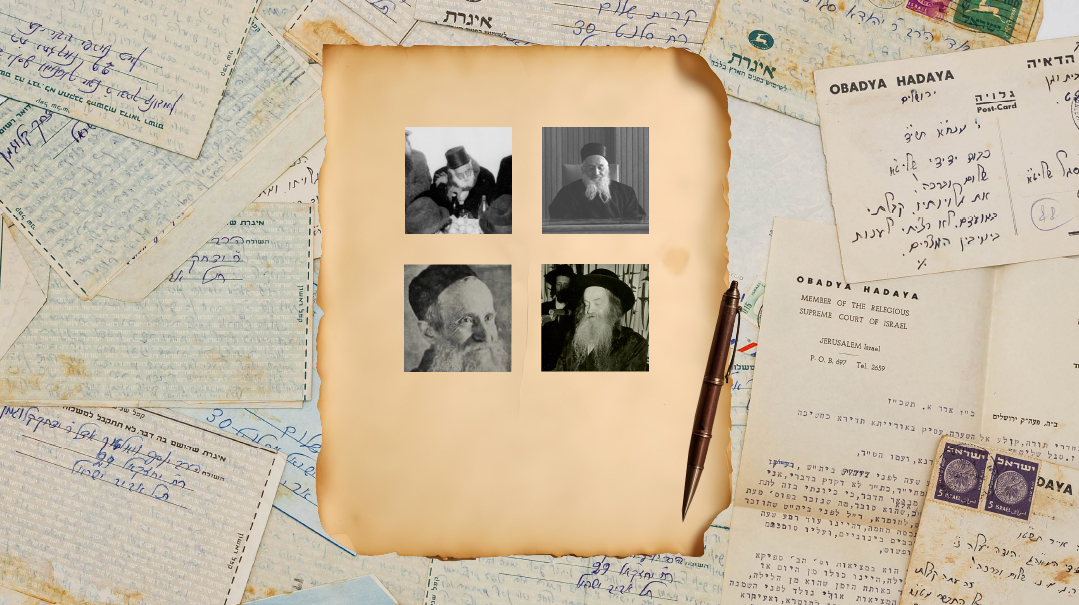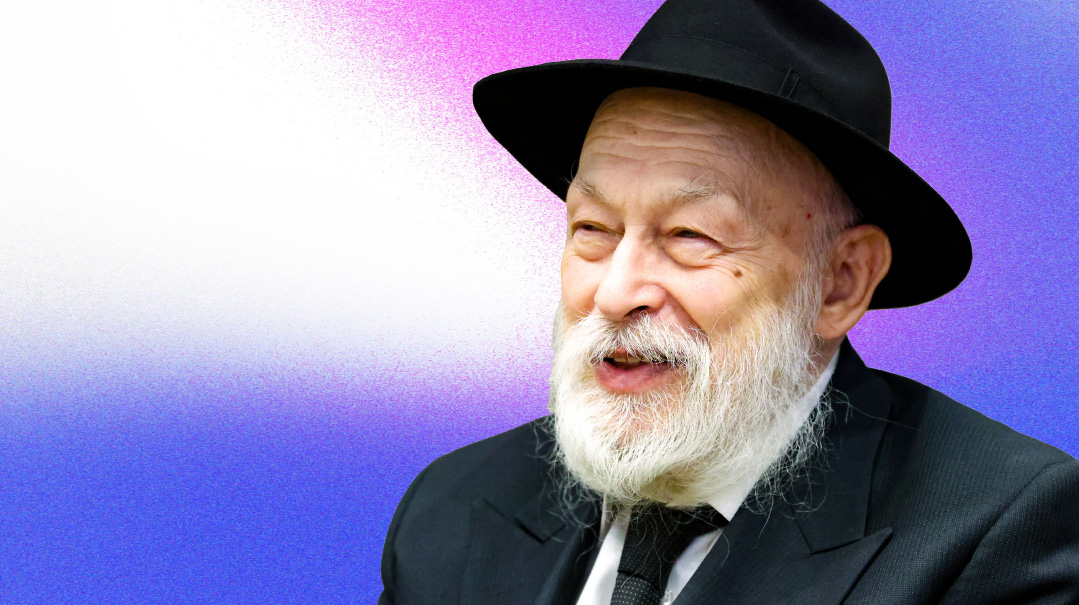Pillars Imperiled: We Still Need Miracles

An Israeli High Court ruling crosses the Torah world’s red lines
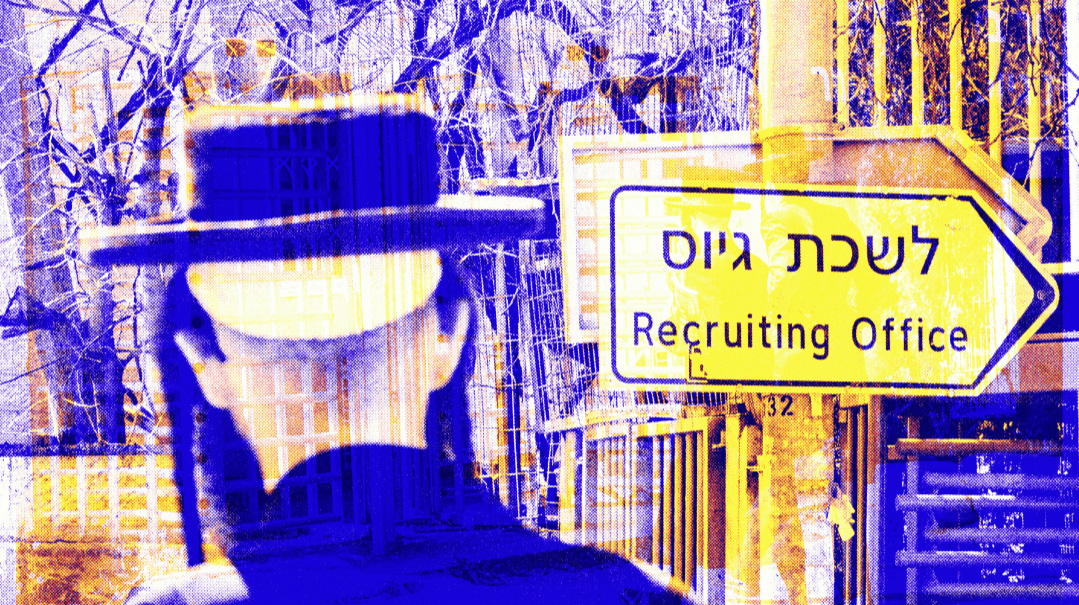
Photos: Flash90
The chareidi draft issue has always been a potential menace at the margins of Israeli politics, but after a shocking High Court decision last week, that threat has thrust tens of thousands into legal limbo and created a fundamental societal clash. Rav Yitzchak Berkovits gives context to an issue so emotionally charged that everyone seems only to be negotiating with themselves
Like a loaded gun sitting on a side table, the chareidi draft issue has always loomed as a potential menace at the margins of Israel’s febrile politics. But after a shocking High Court intervention last week, that threat has taken center stage in what is now an ugly standoff over the future of Israeli society.
As of April 1, tens of thousands of bochurim and avreichim now exist in legal limbo. Years of draft deferments have given way to an immediate requirement to enlist, and funding to their yeshivos has been cut. While no one expects the military police to round up thousands of bochurim, the government is now on borrowed time, as politicians grasp for a workaround, to keep the coalition from imploding and keep the lights on in yeshivos.
The split over the issue runs far deeper than these technicalities, though. Six months into an existential war that drew different parts of Israeli society together, divisions have returned with a vengeance. On the chareidi side, the draft law strikes at the heart of the Torah world’s existence, threatening the postwar yeshivah world’s miraculous renaissance. But to vast numbers of Israelis whose sons are in uniform — including traditional and religious sectors who are natural allies of the chareidim — the refusal to share the military burden is equally unthinkable.
This clash of worldviews is not just a question of better PR, but of fundamentals. What is the responsibility of the Torah world in a post-October 7 emergency?
Mishpacha turned to Rav Yitzchak Berkovits shlita, rosh yeshivah of Aish HaTorah, whose position at the juncture of the yeshivah world and long-standing efforts to encourage outreach efforts beyond afford him a unique viewpoint of the path that needs to be navigated.
For the last 75 years, the chareidi world has put the creation and maintenance of the yeshivos as the foremost priority, to the exclusion of national service. But after the existential trauma of October 7, has anything changed in that equation?
The first issue to be addressed, even before getting into details, is that this is an emotionally charged issue on all sides, and everybody seems to be negotiating with themselves. Nobody is really presenting a position that the other side could possibly understand.
The context for the chareidi position is a worldview that is totally alien to the non-frum, and differs even from the value system of the dati-leumi Jew. It obviously begins with the acknowledgment of the Creator as reality and the Divinity of His Torah, but includes Torah study as not only the supreme value but that which sustains all of existence.
In the dati-leumi camp, no mitzvah is more sacred than yishuv Eretz Yisrael, and defending our land and people is milchemes mitzvah. Our refusal to be part of that is seen by them as a warped interpretation of Jewish values, no less than the threat to compromise the yeshivos is what many of us see as a gezeiras shmad. To the non-frum, the obvious inequality when it comes to giving up one’s life for his people is totally inconceivable. All sides repeat their positions with passion rather than attempting to make their positions understood by members of a different camp.
There’s indeed a dialogue of the deaf here, with both sides talking past each other. So, let’s start with the Torah community’s position, and then clarify how to communicate that.
When it comes to yeshivos, nothing has changed after October 7. That which keeps the Jewish nation alive is the yeshivah world. The olam hayeshivos consists of bochurim and eventually avreichim who dedicate their lives to learning, to the exclusion of everything else. In most cases, they live very frugally and raise their families with mesirus nefesh. They see this as the number one priority in keeping Klal Yisrael alive.
We’re not talking about learning Torah because it’s geshmak. That’s a wonderful thing. We’re not talking about training as rabbis or educators. It is about dedicating one’s entire life to learning at the expense of everything else. It is Torah that has kept our people alive over all the years of galus and persecution and continues to do so in a land surrounded by enemies.
Famously, though, Rav Chaim Kanievsky, along with other bochurim from the Lomza Yeshivah, filled sand bags in the 1948 War of Independence. What changed in the Torah world’s attitude to national service in wartime?
What changed is that the things are established today. The problem is that what was once a very small country and a tiny yeshivah world — more like a family — has become institutionalized, and there’s no such thing as a case-by-case decision anymore.
Ideally, there should be some way for those chareidim who are not learning — whether they’re officially enrolled in kollel or not — to do something for the yishuv in Eretz Yisrael. The problem is that individual solutions don’t work on a national scale.
The latest government proposals are meant to only exempt those learning, while the rest serve. Why can’t that be in the army?
The reality is that the Nachal Chareidi idea didn’t work out. The last people we want in the army are those who are not comfortable with their Yiddishkeit or who just don’t have that love for Torah. In the dati-leumi world, there is a significant drop out rate in the army. The Hesder system is only in the beginning; later in their army service, they are mixed into regular units, and they’re exposed to everything they didn’t want to be exposed to.
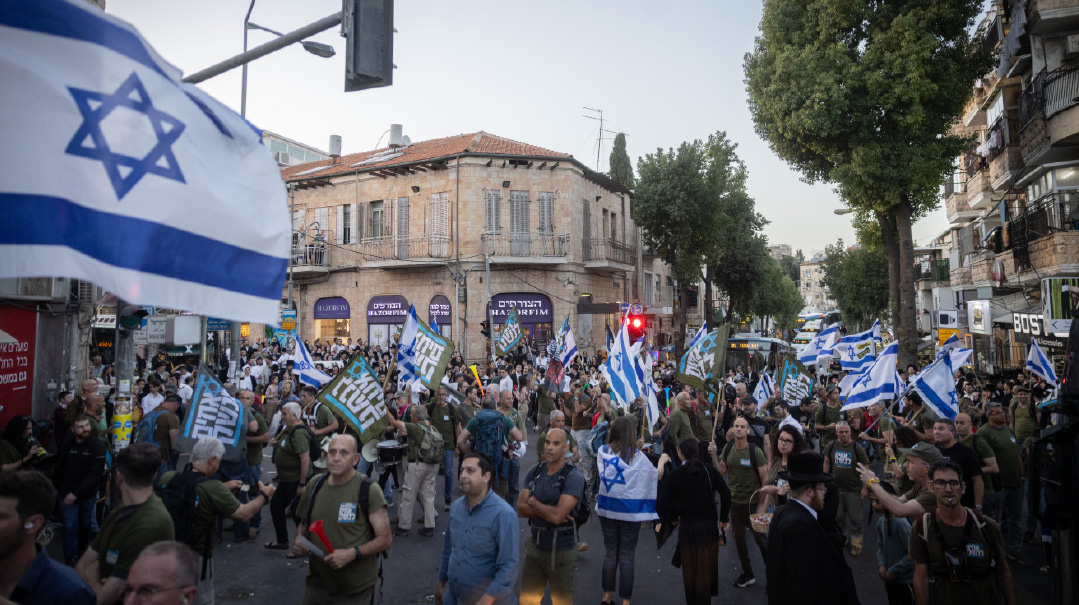
Post-October 7, it seems clear that the IDF needs more manpower. Is that not something that the chareidi world has to be concerned about?
It’s indeed a very frightening situation. If the Arabs had carried out their full plan, which was to attack from all sides — a major attack from the north at the same time as the invasion of the south, and that the Arabs in the territories would also be attacking — things would have been far worse. That threat is still there. There’s not enough manpower to fight that as it is.
But you know, we exist in Eretz Yisrael due to nissim. We’re not just surrounded by enemies from without. We don’t know who within is a terrorist. So, we need miracles.
The most important asset that Klal Yisrael has is the olam hayeshivos, now more than ever. And the fact that we’re protecting Klal Yisrael means that we need to take ourselves seriously. If we recognize that at a time like this, when Klal Yisrael is in danger, the yishuv in Eretz Yisrael is in danger, then we need to take what we’re doing seriously.
What does that look like in practice? Taking ourselves seriously?
I know it’s very difficult to maintain a state of chizuk long term, but in the first days after Simchas Torah, when the yeshivos reopened early, people were learning like crazy. There were all-night sedorim. You know, it was very difficult to maintain that. And I think people have gone back to normal life. We really do have to strengthen our passion, our hasmadah and our tefillah.
So as far as the Torah world is concerned, nothing concrete changed on October 7?
That’s not true. There’s a real feeling that we have to do our part. Klal Yisrael is in danger, and if anything, we have to be there with mesirus nefesh more than ever before. We also appreciate what everyone else is going through, and this has to be stressed — that we are aware of the sacrifices of so many families, of those who are on the front lines. Yishuvim with no men, where every woman is a single mother, not to mention the almanos and yesomim.
We don’t differentiate between one Jew and another, but a disproportionate number of these people are from the dati-leumi world. We have major differences in hashkafah with them, but there’s no question about their emunah, their mesirus nefesh, and their middos. They are special people.
We who come from a less insular background find it important to step forward in a practical way to acknowledge their suffering. In our kehillah in Sanhedria Murchevet, we’re providing Shabbos meals for the different yishuvim where the husbands aren’t home and the wives are just overwhelmed. Women from our community are cooking and baking. The Go Chessed organization operates out of our community organizing food for Shabbos and different activities to help families in need. Our efforts are met with much appreciation. (I am in no way advocating that husbands should be closing their Gemaras to get involved in such chesed. This is a time for more Torah and not less.)
What else changed after the Simchas Torah attack?
I think everything became much more serious. There was certainly a recognition in non-frum society that everybody needs everybody, that we’re in this together. Secular Israelis were totally reliant on the IDF for security, and that myth has all but vanished. There is more of an openness to religion and love for all Jews. It’s just a maaseh Satan that this army issue has returned, which is really compromising the respect for Yiddishkeit and whatever semblance of achdus that prevailed since Simchas Torah.
Unfortunately, the army issue is so emotionally charged, and it’s something that’s so difficult for anyone secular to understand at all. Neither do the dati-leumi, who sincerely believe that the State of Israel is one or another form of malchus Yisrael and that therefore its battles conform to the halachic definition of a milchemes mitzvah.
So, in the Torah world’s hashkafah, why is what’s going on here not indeed a milchemes mitzvah?
Rav Moshe Feinstein was asked by one of the rabbanim of Kfar Chabad years ago whether Israel’s wars fall under that category. He has a teshuvah in which he writes that to meet the definition of a milchemes mitzvah, you need a Jewish king and you need the Urim V’Tumim (despite the fact that the Rambam omits that last condition).
(It is obvious in today’s situation just how desperately we need Urim V’Tumim. Large-scale issues of life and death are being determined by politicians who generally hesitate to take unpopular positions that could be harmful to their political future.
What stands out as such an issue is the decision to send an army into Gaza for months to do house-to-house fighting in a chamber of horrors. The soldiers, wherever they walk, for all they know, there’s a hole underground and someone’s about to blow himself up under them, or send a rocket. There are so many more casualties already than there are hostages. A less popular strategy but less costly in lives may have been the right answer.)
The question about the army post-October 7 raises a wider question as to how to view the State of Israel. On the one hand, the state institutions from the government to the High Court have actively undermined Torah and mitzvos — even under a tradition-friendly government. On the other hand, the state has financed the massive growth of the Torah world. How do you relate to that complexity?
Mashiach is not yet here. We do not see the government as malchus Yisrael. We view the government as something of a glorified vaad bayit, like the legal entity in charge of running apartment buildings here, which collects fees to maintain the collective building.
Rav Moshe Feinstein in a teshuvah explains what the frum could do to be part of an irreligious government here. He writes that a government has the responsibility to take care of all of its citizens. The political system here, though, is such that if you are not in government, your needs may very well be ignored, so the chareidi parties do their best to be part of it.
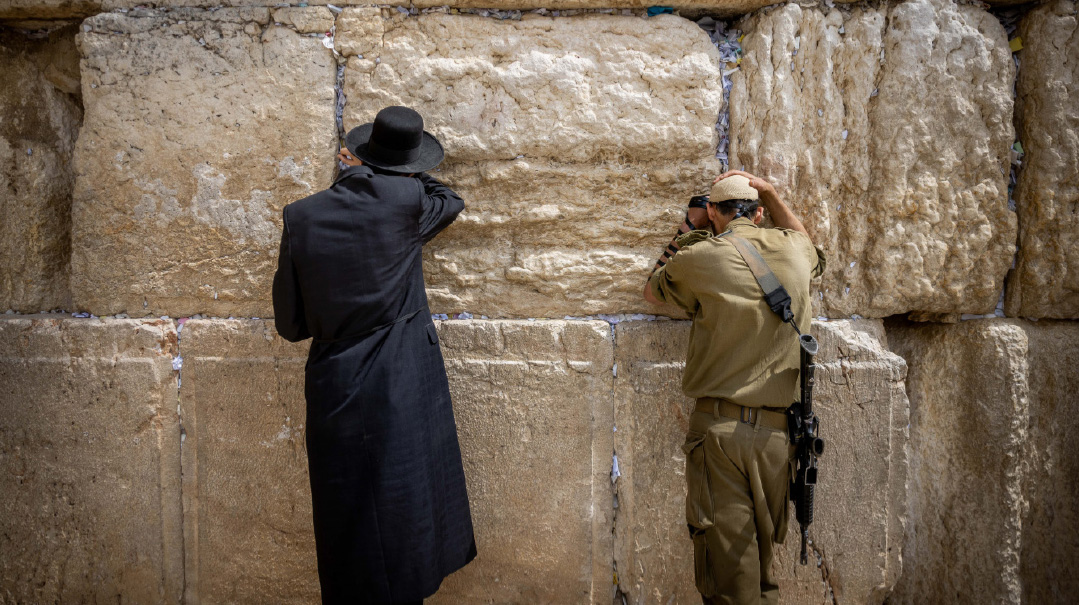
That utilitarian attitude to the government gets back to a previous question, about civic duty. There are frum people who take the attitude that we have no duties because of the inherent problems of a secular government. Do we have any obligation in return beyond paying taxes?
This feeling that everything is “magia lanu” — that we are entitled and have no responsibilities, I don’t think anyone serious and mature believes that. But on the other hand, I think there’s the understanding we’re providing them a service, whether they understand it or not. We’re giving our lives to keep Torah alive for Klal Yisrael.
I think it was Rav Shach who was against taking too much money from the government for yeshivos in Menachem Begin’s time. He was concerned that if they got used to it, it would be difficult to survive if the government eventually cut off the cashflow. So why indeed take the subsidies if they cause such problems — surely it’s big money, but not impossible to survive without?
There’s definitely been a cost to taking the money. Rav Wolbe once said that if we had never taken money from the government for the yeshivos, we could have been mekadesh Sheim Shamayim by avoiding entering politics, which has painted the Torah world as politicians, looking for budgets. That definitely does not put us in a good place.
But we wouldn’t have been in a good place anyway, given the media hatred stirred up against the Torah world.
I believe we really have to do a cheshbon hanefesh about our failure to reach so much of the country. It’s not like everybody in the country is antireligious. We’ve unfortunately done a minimum in trying to reach the masses and have them understand what Yiddishkeit is. We seem to do our best in avoiding contact with them, and the only chareidim they are exposed to are the ones who reinforce the negative image of us portrayed by the media.
What about the kiruv organizations?
They’re relatively small. They’re not so supported by the mainstream of the chareidi world. They’re not so respected here. And the basic attitude that we live with is, we don’t want our kids exposed to anybody who’s not from anshei shloimenu, people not exactly like us. I think the massive clash over the army would not have taken on its present form had we won the respect of the secular population, even if they chose to disagree. The total disconnect is a direct consequence of the fact that we are so insular.
The problem is that the amcha, the traditional Jews who are our natural allies and respect rabbanim, also are fiercely committed to army service and simply can’t see past that issue.
They have no idea what we’re about, and we never attempted to explain ourselves to them. We never said anything in a language they can understand.
There was unity at the beginning of the war, but the draft issue has driven a wedge between the chareidim and the country’s religious and traditional sectors.
In truth, both sides don’t really know each other. The dati-leumi people don’t know the chareidim, and the chareidim don’t know the dati-leumi. Whatever disrespect exists, it’s only because people don’t know each other, which is a terrible thing, and something must be done in a way that will not confuse our youth.
Given the deep sense of injustice that most Israelis feel for the lack of a chareidi draft, what should the chareidi community say to the mother who can’t sleep at night because her son is in Gaza, when at the same time bochurim learn in perfect safety? On a national scale, what should that messaging be?
I’m not really sure what they can understand, until Mashiach comes. But what I would say is the following — that without showing the passion that we attach to Torah, we can’t begin to communicate its importance.
There was a clip going around on one of the TV channels who interviewed a yeshivah kid on a swing in a park. For the most part he said all the right things, that from early life we’re dedicated to Torah alone. Our entire lives are dedicated to our learning every day and not just a few years of “sadir” and then “miluim.”
In that respect, it was very nice. There was one major problem. This was a kid on a swing, chosen to be the spokesman for chareidi society! When a ben Torah shares his passion for Torah, it is difficult not to at least respect him, even if you disagree.
This is a message that has to be gotten across to the Olam HaTorah. They’ve got to feel the passion. They’ve got to feel that we live with mesirus nefesh, that we know that without the Torah, there literally is no future for Klal Yisrael, or humanity, for that matter.
(Originally featured in Mishpacha, Issue 1006)
Oops! We could not locate your form.

